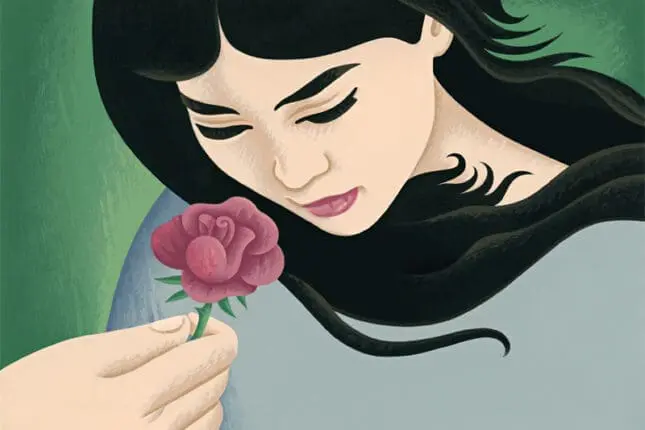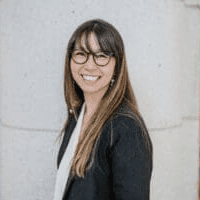Funerals have a way of bringing out the oddest of feelings, and my Grandma Chin’s was no exception. The day was picturesque. The sun shone brightly, and a gentle breeze blew through the trees, rustling the leaves. It was the kind of weather you’d want for a picnic, not necessarily saying goodbye to a loved one. Yet there we were—just eight members of my immediate family—attending this modest gathering.
I suspected that no one outside our immediate family knew that Grandma Chin—my grandmother on my mother’s side—had passed away. In Chinese culture, death is often shrouded in a veil of silence, as if uttering its name might somehow summon it closer. Growing up, I never quite understood this culture of secret-keeping, but over the years, I’ve learned to see through the silence, to find meaning in tones, gestures, and things left unsaid.
The two cars carrying our small family wound though the cemetery, finally arriving at a spot where a few groundskeepers stood quietly beside a freshly dug plot. A chocolate lab sat at their side, a quiet contrast to the solemnity of the moment, next to the open earth waiting for Grandma Chin’s casket. There were no flowers or photos—befitting for a woman who’d lived most of her later life hidden from view. In all the decades I’d known her, I’d never seen Grandma Chin with friends, or heard about anyone stopping by her house for tea.
Standing in silence among all the tombstones, it felt as if we’d stepped into some sort of library, surrounded by people’s stories we’d never read. As I struggled to compose the story of Grandma Chin in my head, I realized just how much of it was a mystery to me. There was so much I’d never bothered to ask about, and now, would never know.
As I reflected on Grandma Chin’s solitary life, I couldn’t help but think about the loneliness I’d felt as a child. Growing up in rural Virginia as the bicultural daughter of immigrants had been difficult. I’d often felt like I was living on the fringes, much like Grandma Chin. My parents had embraced their Americanness with pride, seeing it as not only a means of safety but also, I believe, as a way of reinventing themselves and healing from generational trauma. For them, being American was the great equalizer, the key to a new future.
But I’d struggled—and questioned my own identity—when my classmates had bullied me or asked me what I was. “Tell them you’re Asian-Caucasian,” my parents would advise. I didn’t even really know what that meant—and neither did the kids bullying me. I knew how much my parents and grandparents had sacrificed for us to be here. So I kept quiet about my confusion and sense of shame. I wanted to protect their feelings, to avoid burdening them with my pain or making them feel like all their hard work had been for nothing.
As the years passed, I turned the same questions over and over in my head: Who am I? Where do I belong? And now, standing at Grandma Chin’s grave, those questions came rushing back. I wanted to feel sad, but Grandma Chin and I had never been close. Not only had she barely spoken any English, but she’d lived several states away, so our interactions had been minimal. What might it have been like, I wondered, to have an emotional bond with someone whose influence was deeply woven into the fabric of my family’s history?
My few memories of Grandma Chin are faded snapshots. Mostly, I remember the disparaging comments she’d make about my body and eating habits over dim sum. My younger brother had an adventurous appetite, diving into all types of Cantonese cuisine, but I was pickier. “Eat! Eat!” Grandma Chin would say, piling more food onto my plate—a gesture of both affection and insistence. I knew it was her way of showing care, but it only made me feel more misunderstood—especially when she’d turn to my mother with a look that seemed to say, What’s wrong with her? She’s not like us Chins.
Now, I glanced over at my mother, standing opposite Grandma Chin’s plot, and felt a wave of sadness, mixed with relief. For years, she’d borne the brunt of Grandma Chin’s unpredictable moods. I’d never seen it firsthand, but my mother had told me stories that painted a troubling picture of her childhood: one filled with physical abuse, emotional neglect, fear, and pain, especially as she’d taken on responsibilities far too great for her age, caring not only for herself but for her two younger brothers as well.
There were no “good old days” in these stories: just the raw, unfiltered reality of a poor immigrant family. My mother’s difficult upbringing had shaped her into an incredibly independent, formidable woman, but it had also taught her to suffer in silence. Sometimes, she’d begin to share stories from childhood, then stop abruptly. “Never mind,” she’d say, tears gathering in her eyes. “You don’t want to know about that. It was awful.”
We continued to stand silently as Grandma Chin’s casket was placed in front of us. Nobody, it seemed, knew what to say about a woman who’d been so difficult to love.
After a minute or two, my uncle cleared his throat and took a rosary out of his pocket, launching into the first Hail Mary. His voice was steady, but devoid of warmth. My aunt nodded along silently while my cousin fidgeted, clearly uncomfortable. My mother mouthed the prayer, and my brother and I exchanged sidelong glances.
After he’d finished, my other uncle took a nearby bouquet of roses and passed a single bloom to each of us. One by one, we placed a flower on top of Grandma Chin’s casket. My mother gestured to the groundskeepers, who began to lower it into the soil. I wondered what they must’ve thought of us, dry-eyed and silent.
As the casket slowly descended, I was struck by a sharp pang of regret as my thoughts drifted back to a moment in my childhood when I’d stubbornly declared to my parents that I refused to attend Chinese school. I had longed to fit in with the neighborhood kids and was desperate to escape the constant reminder of my differences. Now, I wished I’d embraced the language, the customs, and the bonds that connected me to Grandma Chin. I’d let my fear hold me back.
Perhaps Grandma Chin had felt afraid, too, when she left my aunt in China and stepped off a boat in New York City, more than 60 years ago. She was young, newly married, and facing the daunting challenge of adapting to life in a place she’d never known. Just a few years later, she’d be managing a laundromat, then later, a Chinese restaurant, all while raising my mother and her siblings, with no friends to drink tea, gossip, and play mahjong with. It must’ve been lonely, I thought. Or had she grown accustomed to the solitude?
My mother’s voice broke my reverie. “Ready to eat?” she said, flashing a thin smile. “I know a place with great paella.”
As we walked back toward our cars, I realized that perhaps the distance between me and Grandma Chin hadn’t been due to a language barrier, or because we lived far apart. Maybe, all this time, my mother had been shielding me from the person who’d made her childhood so painful. I reached out and gently rubbed her back, trying to both comfort and steady her. Our eyes met, and we exchanged a soft smile.
In the days that followed, I found myself replaying the funeral in my mind: the stoic prayers, the quiet procession of roses, and the stories that remained unspoken. As I processed these things, I realized the grief I felt wasn’t just for my grandmother; it was for my mother—and for myself.
While the question of where I belong doesn’t haunt me like it used to, I still find myself struggling to piece together the fragments of my identity. Although I don’t know all the details, my family’s narrative of survival and adaptation has shaped me in ways I’m only beginning to grasp. And I recognize that my journey, like theirs, is one of resilience. As I continue to carve my own path, I hope to honor the rich complexity of who I am.
Monica Band
Monica P. Band, EdD, LPC, is a therapist and educator who specializes in facilitating healing dialogues around intergenerational trauma and cultural identity work. She’s the owner of Mindful Healing Counseling Services, LLC, a group private practice based in Washington, DC. She’ll be presenting at the 2025 Psychotherapy Networker Symposium alongside Sahaj Kohli, focusing on how to support second-generation immigrants and nurture their identity development.












